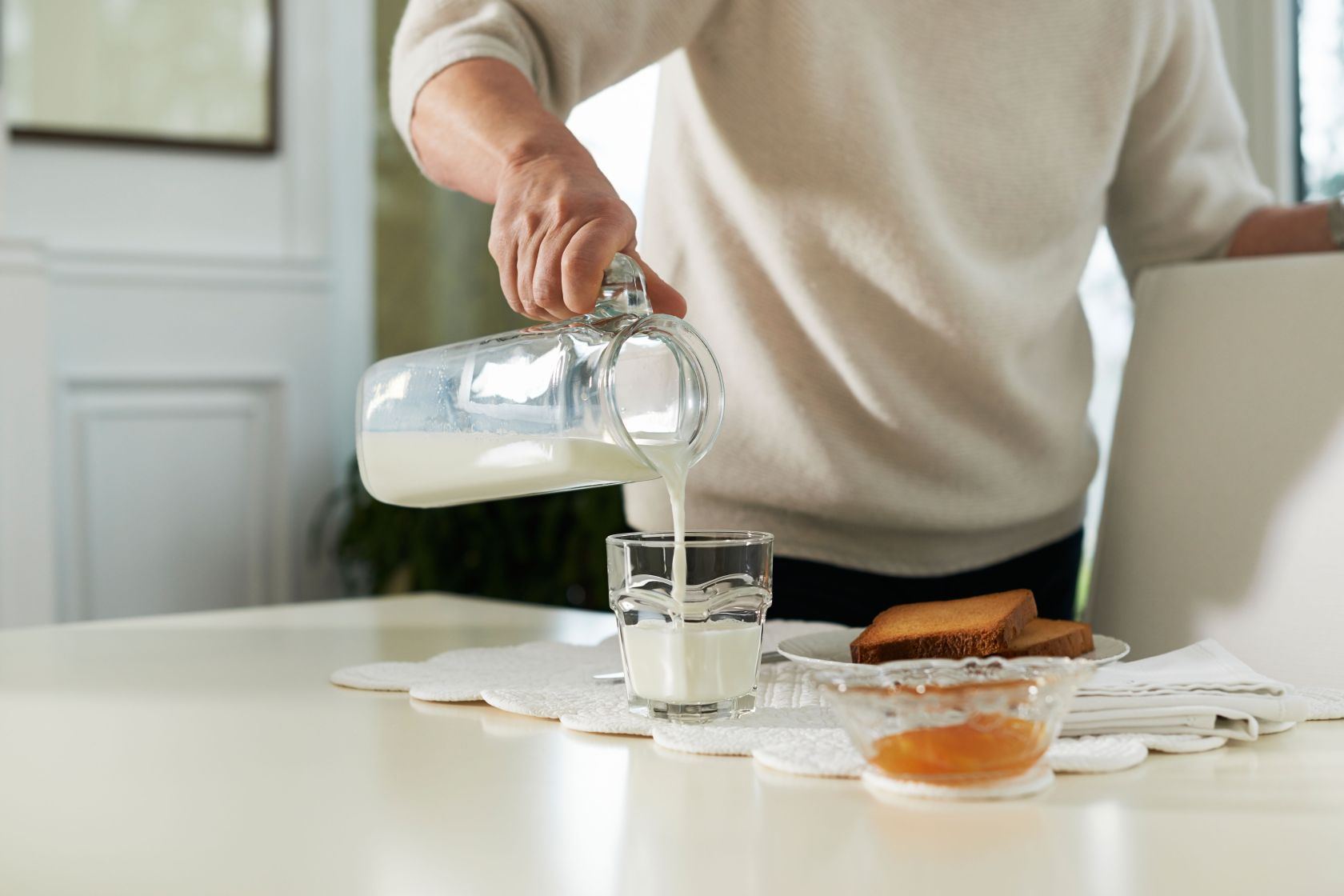Protein isn’t just for building muscle – it plays a vital role in keeping you strong, supporting your immune system and helping you maintain energy to live life to the fullest well into your later years.
Yet many older adults fall short of their daily protein needs. The good news? You don’t need to overhaul your entire diet to fix that. With a few smart habits and the right food choices, staying on track can be simpler than you think.
We got in touch with Dr Sammie Gill, a specialist gastroenterology dietitian at Symprove UK, who has explained the key health benefits of protein and has highlighted how much you should aim for each day. She has also shared five simple and effective ways to make sure you’re getting the protein your body needs every day.
What are the health benefits of protein, especially for older adults?
For older adults, protein is crucial for maintaining muscle mass, strength and overall functional ability.
“Protein is essential for growth, repair and maintenance [within the body], and has several important functions,” explains Gill. “For example, it plays a key role in the structure and support of body tissues and organs. Protein also forms the basis of hormones, enzymes and antibodies of the immune system.
“In addition, higher protein intakes have been linked with higher bone mineral density and a slower rate of bone loss, muscle mass, and strength in older adults.”
Good sources of protein include lean meats like beef, chicken and turkey, as well as fish, eggs, dairy products and plant-based options like beans, lentils, tofu, and nuts and seeds.
What is the recommend daily intake of protein for adults?
“In the UK, adults require 0.75g of protein per kg of body weight daily [according to Reference Nutrient Intake (RNI)],” says Gill. “You can meet protein requirements with animal proteins and plant-based proteins, or plant-based proteins alone.”

For example, a 70kg person would need approximately 52.5g of protein daily, but this recommendation can vary based on factors like age, activity level and overall health.
“Protein becomes more important as you get older with age-related changes in protein digestion, protein absorption, and protein metabolism,” says Gill. “Research suggests that older people (65+) should consume 1-1.2g of protein per kg of body weight daily to support muscle mass and function.”
The dietitian also highlights that it is also important to incorporate exercise, particularly resistance/strength-based exercises, alongside adequate protein intake.
“Protein and exercise work synergistically – their combined effect is greater than the sum of their individual effects,” says Gill.
Why do many older adults not consume enough protein?
Older adults may not consume enough protein due to a combination of factors, including a decreased appetite.

“Decreases in appetite, alongside changes in taste and smell, can result in an overall lower food intake, including protein,” says Gill. “It’s thought around 15-30% of older people lose their appetite. Older people are also at a higher risk of chronic illnesses which often require higher amounts of protein.”
If you are keen to reap the benefits of a higher protein diet, we are here to help. Here are Gill’s five top suggestions on how to incorporate more protein into your diet…
1. Spread your protein throughout the day
“For example, think Greek yogurt for breakfast, eggs at lunch and beans at dinner,” says Gill.
2. Include protein-containing snacks during the day between meals
“For example, a handful of almonds, wholegrain crackers with peanut butter, or a slice of cheese with some grapes,” suggests Gill.
3. Consume more high-protein drinks
“Consider higher protein drinks such as cow’s milk, unsweetened soya milk, or kefir,” recommends Gill.
4. Include items that don’t require much prep time
“For example, cans of legumes (such as chickpeas or lentils) and tinned or frozen fish can be great options,” suggests Gill.
5. Focus on whole foods rather than protein bars
Although protein bars are popular, there are healthier alternatives.
“I wouldn’t recommend protein bars,” says Gill. “They often contain a long list of unnecessary ingredients including sugars, sweeteners, emulsifiers, thickeners, sodium and other additives. Focus on whole foods instead.”















